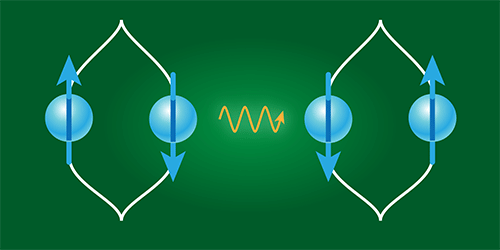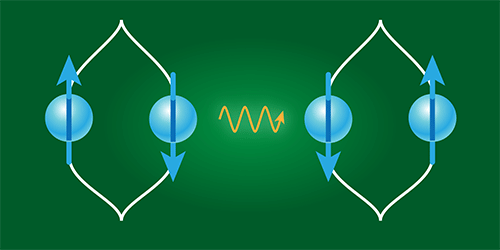A Test of Gravity’s Quantum Side
Quantum theory and general relativity work exceptionally well on their own but stubbornly refuse to play nicely together. Mathematical attempts to reconcile these theories have made some progress, but most proposed experiments for directly seeing quantum gravitational effects are unlikely to pan out because the expected effects are exceedingly small. However, there may be a way to measure these effects indirectly. Two groups in the UK—Sougato Bose at University College London and colleagues, and Chiara Marletto and Vlatko Vedral at the University of Oxford—lay out similar proposals for how to test whether gravity is truly quantum at heart.
The researchers describe similar thought experiments where two masses—microspheres, for example—interact only via their mutual gravitational attraction. If these masses become quantum-mechanically entangled, then gravity must be the culprit. To become entangled by gravity, the masses must be in a superposition of quantum states. Each mass is therefore placed into one of two neighboring interferometers, which create the superposition. If the masses are entangled when they exit the interferometers, this would imply that gravity is inherently quantum, since only a quantum field can induce entanglement.
The experiments are fraught with technical hurdles—not least how to ensure that gravity is the only way for the masses to interact. But they are closer to being realized than other proposed methods, such as directly detecting gravitons. To make these experiments happen, researchers need to figure out how to create and maintain quantum superpositions of relatively massive objects and how to reduce the effects of forces other than gravity.
This research is published in Physical Review Letters.
–Christopher Crockett
Christopher Crockett is a freelance writer based in Montgomery, Alabama.





